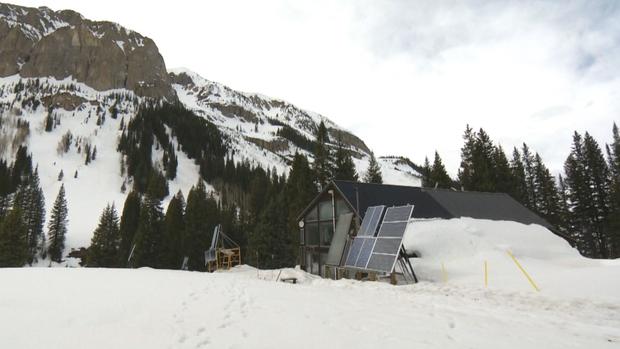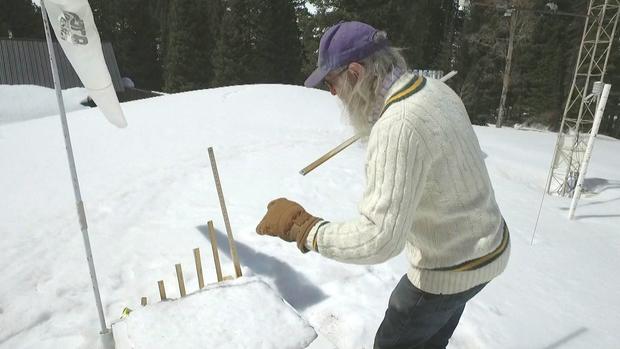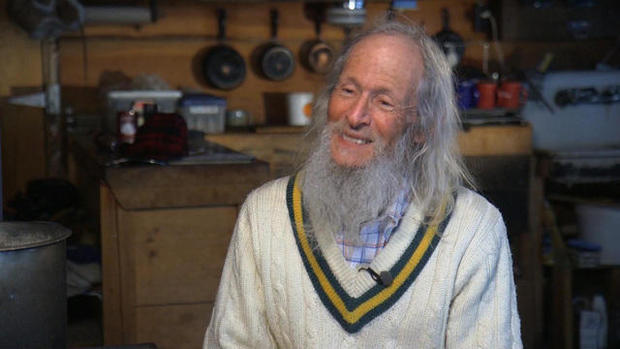Climate diarist "wasn’t out to prove anything"
GOTHIC, Colo. -- A springtime visit to Billy Barr’s place in the Colorado Rockies is no simple journey. To avoid a three-mile cross country ski from the nearest paved road, first you need a forest service permit. Then you hitch a ride like ours, courtesy Dave Ochs and his Crested Butte Mountain Bike Association.
But it’s all worth it when you discover a remote cabin deep in the woods is home to one of the world’s most valuable – and unexpected – troves of scientific data.
“So I came out late May, summer of ‘72,” Barr said. “It was such a mental relief just to have peace and quiet in my life.”
He lived in a shack that was 8 by 10 feet, he said.
“The wind would literally blow snow through the cracks,” Barr told CBS News correspondent John Blackstone.
“You came for the solitude, but you started to get a little bored?” Blackstone asked.
“A bit of boredom, but a lot of it was just… making my own activity,” Barr said.
Since 1974, he’s taken measurements twice a day, but it wasn’t just the snow depth and when it melted. Using a hand-operated system he built himself, he also calculated how much groundwater that snow would produce when it melted.
When that wasn’t enough to keep Barr busy, he started tracking wildlife and recorded it all by hand in a series of now-tattered notebooks.
“You’ve gotta be a little obsessive though,” Blackstone said.
“Oh yeah!” Barr responded.
In the early ‘90s, scientist David Inouye from the neighboring Rocky Mountain Biological Laboratory needed data for his research on wildflowers. He had heard about Barr’s notebooks, but was shocked when he saw how comprehensive they were.
“I said, ‘Billy! You know those data are really relevant to how the climate is changing, and how animals are responding to the changing climate,” Inouye said.
Barr said he had no idea his measurements would have any kind of long-term significance.
“Remember this was mid-’70s, early-mid-’70s,” Barr said. “If you asked me about climate change, I would’ve said, yeah, it got warm, I took my sweater off. I mean, it meant nothing to me!”
But now it means everything to the global scientific community, which has published his numbers in dozens of scientific papers.
“One of these days, I’ll read ‘em! Yeah,” Barr said. “I wasn’t out to prove anything. I just recorded the numbers.”
“This winter we’ve had 21 record highs, last winter 17, the winter before, 36!” Barr said at his weather station.
Like most climate scientists, Barr is concerned by what his numbers show: temperatures are rising and snow is melting earlier each year.
“It’s worrisome, obviously, it’s not a good trend,” Barr said. “Will we lose water storage? Will drought increase? Will floods and famine increase?”
But Barr leaves the answers to big questions like those to others. He’s content to do his part and head out into the wilderness, where there’s an infinite amount of data waiting to be collected.






